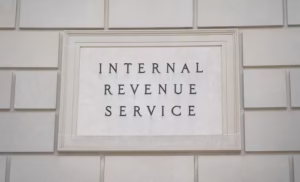As discussions on federal spending continue on Capitol Hill, the potential repercussions of a government shutdown are becoming increasingly apparent. Millions of Americans, particularly those relying on food assistance programs, are at risk of facing significant challenges. In this article, we explore the implications of such a shutdown and how it could affect various segments of the population.

Table of Contents
The Struggle to Keep the Government shutdown Open
House Republicans are currently working diligently to pass the necessary spending measures to prevent a government shutdown after Saturday. The implications of a shutdown are widespread, affecting sectors ranging from air travel and public health to national parks and, significantly, food assistance.
Vital Nutrition Assistance at Risk
The Biden administration has raised alarms about the potential risk to nearly seven million people who depend on the Special Supplemental Nutrition Program for Women, Infants, and Children (WIC). Administered by the U.S. Department of Agriculture (USDA), WIC provides essential resources including healthy food, nutrition information, and breastfeeding support to low-income pregnant and breastfeeding women and children up to age 5.
Immediate Cutoff for WIC Beneficiaries
U.S. Agriculture Secretary Tom Vilsack has warned that the majority of WIC beneficiaries could face an immediate cutoff of access to the program, with many experiencing this within days. The impact of this would be particularly felt in states like California, Texas, and Florida, which have the highest number of WIC recipients.
Potential Impact on SNAP
Depending on the duration of a potential shutdown, the Supplemental Nutrition Assistance Program (SNAP) could also be affected. While it would continue as normal through October, any extension of the shutdown could jeopardize the program, affecting millions more.
Farmers and the Supply Chain
A government shutdown would also have repercussions up and down the food supply chain. Farmers, many of whom rely on marketing loans, could potentially lose profit. Additionally, a shutdown would delay the reauthorization of the U.S. Farm Bill, creating uncertainty for farmers and affecting key farming and social safety net programs.
Food Safety and Inspection
The Food and Drug Administration (FDA), responsible for overseeing the majority of the U.S. food supply, could face challenges in conducting proactive inspections during a shutdown. Former FDA Deputy Commissioner Frank Yiannas has highlighted the potential ripple effects throughout the food system.
Effects on School Lunch Programs and Meals on Wheels
A shutdown could also disrupt free and reduced lunch programs across the country and delay federal payments to Meals on Wheels. This could result in a reduction, delay, or suspension of services, severely impacting vulnerable older adults facing hunger and isolation. (USnewsSphere.com)[nytimes]
The potential government shutdown poses real and immediate risks to millions of Americans, particularly those relying on food assistance programs. It is essential for lawmakers to consider the far-reaching consequences of their actions and work towards a resolution to prevent such a disruptive event. As Secretary Vilsack aptly put it, the impact of a shutdown is felt “in a real way,” and it is crucial for everyone to stay informed and prepared.





